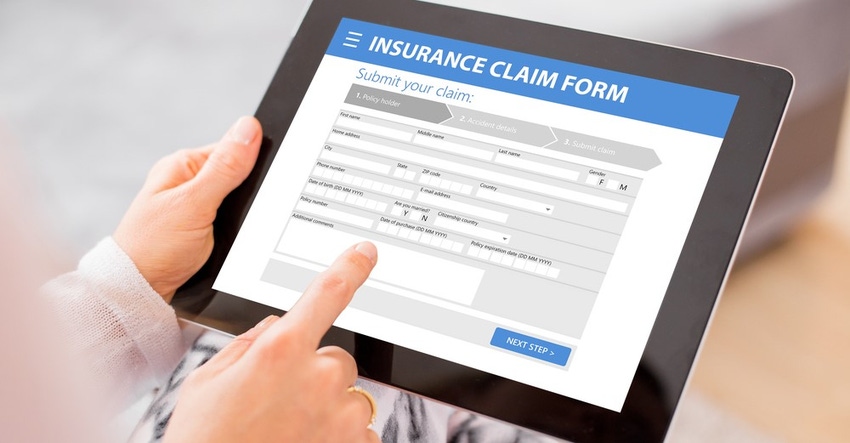Streamlining the Insurance-Claim Process: A Guide for Self-Storage Operators
If damage occurs at your self-storage property or someone gets hurt, you’ll likely need to file an insurance claim. While the process might seem tedious or overwhelming, it’ll go smoother and quicker by following these simple steps.

Last year was extremely challenging, and self-storage operators learned many valuable lessons about protecting their business. Now’s the time to examine your company from a liability point of view and safeguard against an unpredictable future.
A big part of any risk-management plan is, of course, insurance. It’s important to have the right coverage in place when you need it. There’s been an increase in self-storage claims in recent years, due to a host of reasons: bad weather, crime, accidents, injuries, property damage and more. The process of filing can feel tedious and intimidating, but if you follow these general tips, the transaction will be smoother and quicker.
Report the Incident
Whatever the reason behind your need to file an insurance claim, the most important thing is to report the incident and initiate the process as soon as practical. Timing is critical to the flow of information. Your carrier will ask questions to gather the facts and assign the claim internally, and then an adjuster will need to assess the loss. It all begins with your initial outreach.
Mitigate Damage
A common question many self-storage operators ask following an incident of loss at their property is: Should I initiate cleanup or take any other actions toward immediate remediation? If repairs are necessary to prevent further damage, the answer is yes. However, it’s always best to get the insurance carrier’s approval for any work or expenditures, as they may not be deemed essential.
There are obviously expenses involved in hiring a cleanup or restoration company, which can cause initial hesitation. However, the language in most insurance policies is clear: The holder should do whatever is reasonably possible to mitigate damage and preserve property. That said, never do anything that would put you, your staff or tenants in danger. If you have questions about this, ask your insurance representative.
Document Everything
There’s no such thing as over-documenting a loss. It’s important to obtain written, photo and video evidence of any incident.
For example, in the case of a fire at a drive-up self-storage facility, you might proceed with moving tenants’ property from damaged units once they’ve been deemed safely accessible by officials. Video can be used to show that all went smoothly, and all items were handled with care. The last thing you want in addition to the existing property claim is to have an additional liability claim because a tenant feels his goods were mishandled.
Cell-phone photos and videos do the job just fine. The claim adjustor will appreciate it, and your diligence will help avoid problems down the road, which will benefit your business.
Establish a Point Person
No matter the size of your self-storage facility or company, having a designated person to focus on insurance claims is helpful in avoiding communication issues. Information can be easily misconstrued when there are numerous “chefs in the kitchen.” When the insurance-claims department or adjuster calls, make sure all details are delivered in a clear, direct manner by your point person. If you’re missing any important information, just say so, and let the adjuster do his job to investigate.
Get Estimates
Once you’ve been given the green light to begin the restoration process, it’s a good idea to obtain multiple estimates for any work. This won’t only help move the process along, it’ll show the insurance company you did your research. Your insurer be more likely to cover the cost of your chosen contractor—and quickly—if you can demonstrate that you’re looking to do things responsibly and economically. In the long run, it’s in your best interest to have the job done at the best price, as a history of high payout claims will adversely affect your insurability in the years ahead.
Seek Advice
Typically, your insurance broker will step in to report a claim and help in reaching an adjuster if necessary; however, he’ll take a step back once the adjuster is actively involved. If necessary, contact your broker when you review the claim itemization to ensure everything looks accurate and coincides with your policy coverage. Should there be any discrepancies, he can be your best advocate in working with the adjuster to find the solution that will result in an efficient claim closing.
Ultimately, the insurance company will make the decisions, but your broker will be able to decipher your policy and advise you on coverage limits. It helps to have your policies with a brokerage that has a dedicated claims division, as it often employs personnel with law degrees and extensive experience in the field. These specialists have the knowledge to productively work with insureds and adjusters. If your broker has specific experience in self-storage claims, it’ll be a huge asset to you and a timesaver in the overall process.
Moving forward, it’s important to regularly assess your insurance-coverage needs, in relation to current events and how the self-storage business is likely to evolve. Unwanted incidents will occur, but your carrier is there to help you through the tough times. When it comes to filing a claim, following the above steps and having a knowledgeable insurance broker on your side throughout the process will prove invaluable.
The information in this article is provided for informational purposes only and shouldn’t be construed as legal advice. Insurance claims are evaluated on an individual basis and subject to policy conditions, exclusions and limitations.
Lauren Nicholson is a principal and account executive for World Insurance Associates Inc., which provides an insurance program designed specifically for the unique needs of the self-storage industry. Coverages available include wrongful-sale liability, customer goods liability, pollutant removal, loss of rental income, employment practices, cyber liability and more. To reach her, call 914.490.1160; email [email protected].
About the Author(s)
You May Also Like





